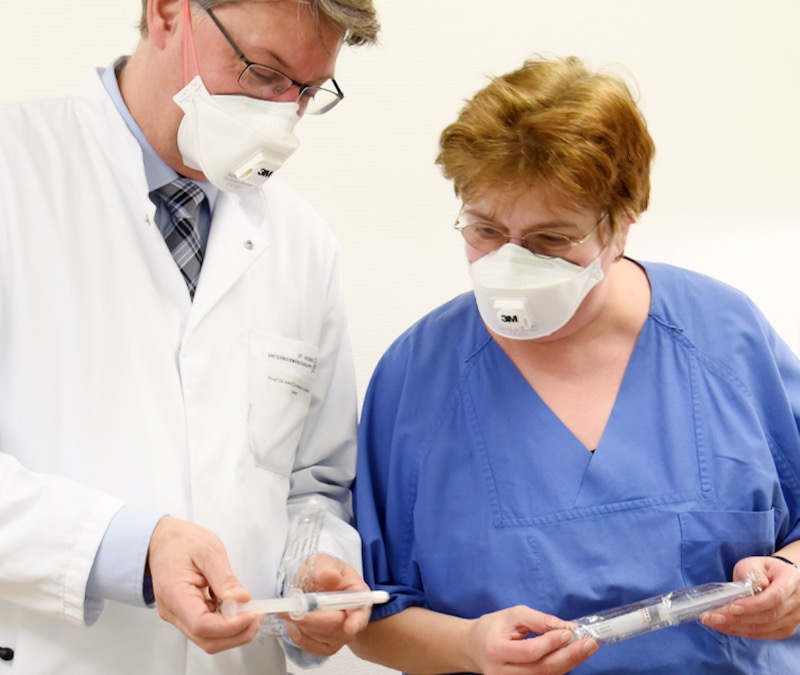Saxony has become the first state in Germany to allow churches to re-open for public services.
The governor of Saxony, Michael Kretschmer, announced that from 20 April onwards churches can hold services, albeit “on a small scale”. The Saxony cabinet published new corona-protection regulations which stated that religious gatherings in church for up to 15 people were now allowed including for baptisms, weddings and funeral celebrations.
The leaders of the Catholic and Protestant Churches welcomed Kretchmer’s decision. Bishop Heinrich Timmerevers of Dresden-Meissen expressed his relief and Protestant Bishop Tobias Bilz said he was aware of the great responsibility which the relaxation of the suspension signified.
On 20 April, Mass was duly celebrated in the Catholic Provost Church of the Holy Trinity in Leipzig for the first time since the suspension of church services five weeks ago.
To the ringing of the church bells, the first 15 members of the faithful who had registered on the internet were let into the church by the parish priest, Provost Gregor Giele. Wearing a mask, he ticked off their names as they entered and explained to those who had not registered why he could not allow them to attend Mass.
The 15 who were allowed in each had a whole pew to themselves. They were given a copy of the regulations concerning hygiene and distancing which was headed, “Please be careful, religious services are still risky and for the moment an experiment!” They explained that Holy Water was not allowed and that there would be little singing, that handing round collection baskets was forbidden and that one should just “bow politely to one another” at the sign of peace,
As for communion, Provost Giele explained that he had decided against using disinfectant on the hands as it took too long to dry and he feared the host might taste of disinfectant as a result. Wearing gloves and without saying anything, he would distribute the Eucharist into the hands of the communicants who should come out singly and stretch their arms out as far as possible. At the Consecration, the ciborium with the hosts in it would be covered so that no germs are spread when the priest speaks the words of consecration.
“The sentence I have had to repeat most often today is, ‘I’m very sorry, but Mass is already booked out’,” Giele said. Within the first 24 hours of the publication of the lists on the internet, 160 people had put their names down, he explained. From now on three Masses a day would be celebrated.
But Bishop Gerhard Feige of the neighbouring diocese of Magdeburg told katholisch.de that Catholics should stop pitying themselves and complaining. “We as Christians should surely act responsibly and show solidarity in order to curtail the life-threatening virus and prevent our health workers from becoming overtaxed instead of behaving like certain lobbyists and trying to push through our own particular interests.”
After the Reformation, Eastern Germany became a Protestant heartland. Religion was persecuted under both the Nazi and Communist regimes. But since the fall of the Iron Curtain in 1989, Catholic church life has slowly increased. According to a 2016 poll, 3.7 per cent of the population is now Catholic, 18.6 per cent Protestant and the rest officially non-believers. In West Germany, 28 per cent are Catholic and 26 per cent Protestant.



 Loading ...
Loading ...